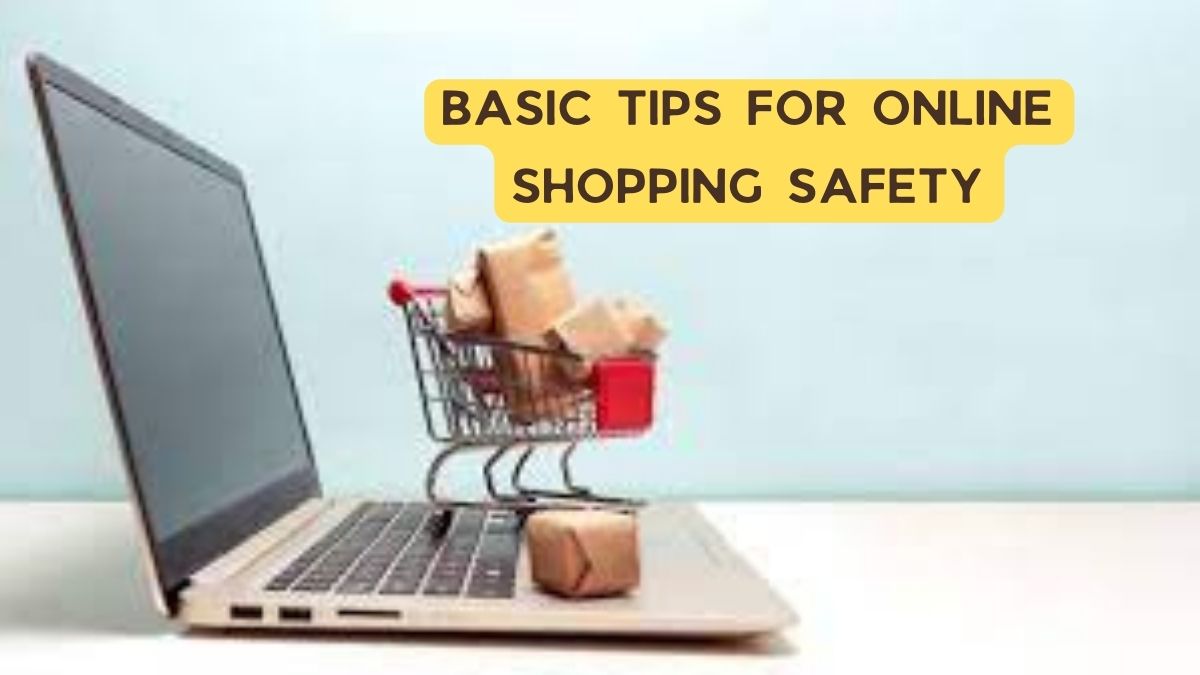Basic Tips for Online Shopping Safety
Online purchasing Online shopping is now easier to do and more popular than ever. In reality, 95% of Americans buy anything online at least once every year, and as the reputation of companies like Amazon and Zappos grows, more people will do so in the future. Online purchasing has some advantages over traditional retail stores, including convenience and appeal, but it also entails a greater risk of fraud and theft of financial and personal information. According to Pew Research Center, 41% of Americans have had fraudulent charges made to their credit cards. As an online consumer, you incur the continual risk of having your financial and personal information stolen.

To help you ensure that you are taking the required actions to protect and secure your online presence, we have gathered information. Here are seven methods to ensure the security of your online purchases:
First, get to know the advertiser.
The best deals are only available online, but James Condon of Marketing Experts Agency warns consumers to exercise cautious. Make sure you are making a purchase from a legitimate website because it is simple for a fake website to replicate the layout of a popular retailer’s website. The website’s lack of contact details is a red flag.
Practice smart purchasing.
When making an online purchase, always take your time and read the fine print. Note the return procedure. Although many online purchases can be returned for a full refund, some incur restocking fees, and certain items cannot be exchanged. Learn before you buy. If you want to buy cosplay outfits, you can do so here.
Verify Website Security
A secure website’s URL (web address) should start with “https://,” and the checkout or shopping cart page should have a lock icon.
Vivipins’ Robin Brown recommends customers to research a website’s security before making an online purchase. You do not want your information to be compromised in the modern world.
See also
Fashion Archive
Safeguard Personal Data
Read a website’s privacy statement to find out what personal information is being requested and how it will be used. A website should have a privacy statement; else, it can be a scam.
Think Before you Click
Particularly avoid email solicitations and online advertising on social networking sites. Many dubious companies advertise amazing deals or chic merchandise that falls short of the promise.
Avoid deals that seem too good to be true.
According to Mark Lumb of Domain Knowledge, “offers on websites and in unsolicited emails may claim free or exceptionally low pricing on difficult-to-find items.” Unstated costs can apply, or making a purchase might bind you to a monthly subscription fee. Look for it in the fine print and read it.
Beware of online shopping scams
When you click on links in phishing emails, you run the risk of downloading malware and/or having your identity stolen. Phishing emails may appear to be from a reputable company. One such scheme impersonates a parcel delivery service and provides “tracking information” on an order you never placed. Do not click!
Use Credit Card While Online Shopping
Extra security is provided by a credit card in the event of a fraudulent purchase. It’s easier to deny allegations that you didn’t consent to. Debit cards, prepaid cards, and gift cards are not subject to the same security regulations as credit cards.
Keep the Records of Your Online Shopping
A copy of the confirmation email or page should be saved until the item has been received and authorized. Make sure you are aware of the return policy, write it down with the details of your purchase, and abide by it.
Keep you Device Clean
Install a firewall, anti-virus software, and anti-spyware. The most recent updates should be loaded on your phone, tablet, and computer, and all three devices should be regularly checked for updates and virus-scanned.



